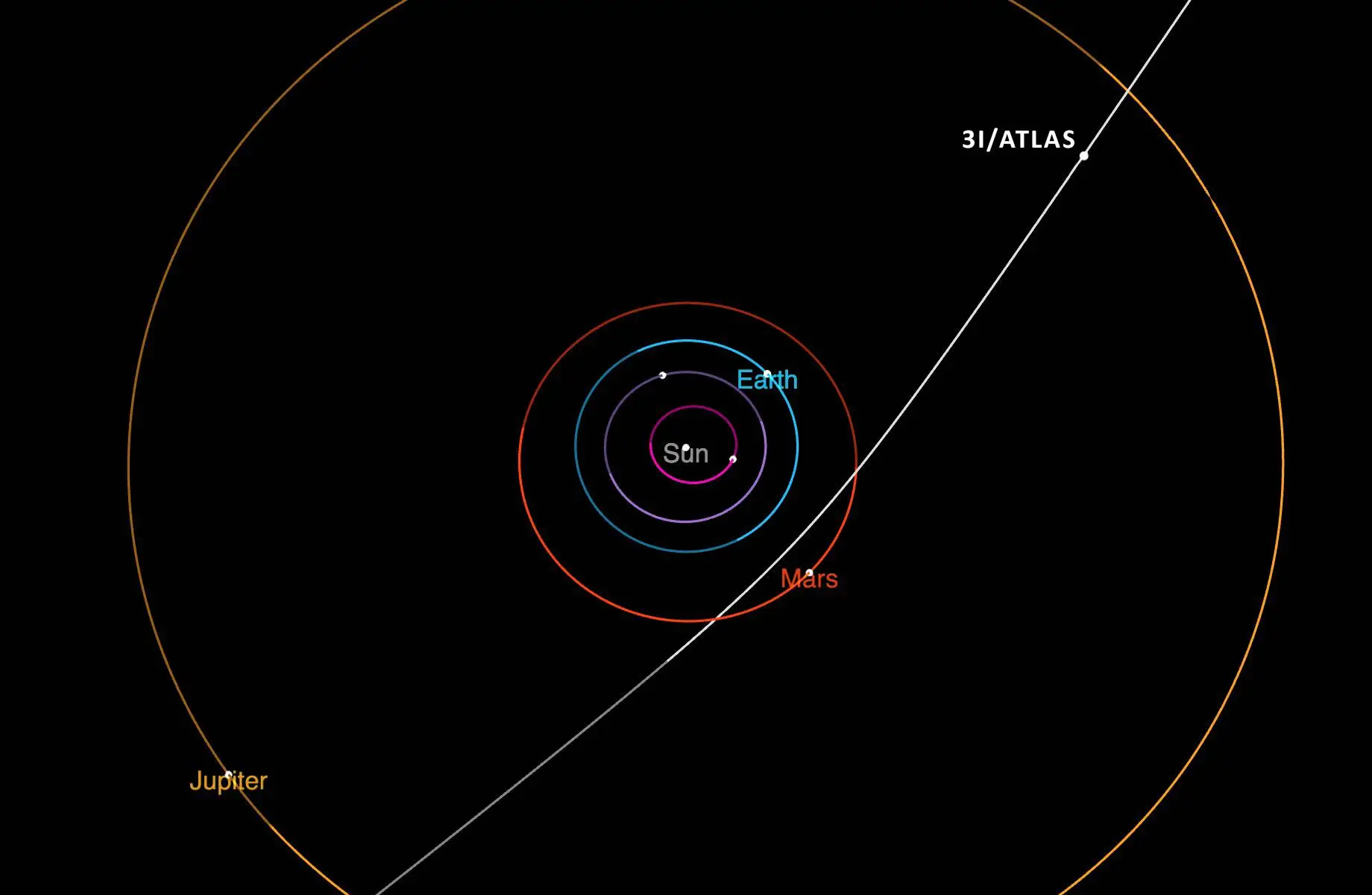
NASA has given us an update on the 3I/ATLAS 'hostile' alien comet that is currently hurtling toward us. We've seen enough sci-fi movies to know what alien objects crashing into Earth can do, and even if it isn't little green dudes coming out to probe us, the environmental effects could be catastrophic.
The high-speed 3I/ATLAS was first spotted on July 1, racing toward us at a jaw-dropping 209,000 km/h and being dubbed the fastest interstellar object ever observed by astronomers.
While some remain confident 3I/ATLAS will simply make its way into our solar system and skim past the Earth as most comets do, others are convinced it's a 'hostile alien threat'.
October 29, 2025, is when 3I/ATLAS will be closest to the Sun, but could it really hit us? Initial measurements from the Vera C. Rubin Observatory calculated that the comet could be as big as seven miles across, which would dwarf the supposed city-killing asteroids. New observations from the Hubble Space Telescope suggest 3I/ATLAS is 3.5 miles wide at its biggest, but could be as small as 1,000 feet.
Advert
Even though we're sure that many will be breathing a sigh of relief, the idea of anything from outer space hitting Earth is cause for concern. Just look at the panic when a cherry tomato-sized meteorite older than the planet crashed through one man's roof in Georgia.

A July 2025 study from Harvard University has only raised our concern levels higher, with a paper titled "Is the Interstellar Object 3I/ATLAS Alien Technology?" analyzing the comet's patterns and implications: "The consequences, should the hypothesis turn out to be correct, could potentially be dire for humanity, and would possibly require defensive measures to be undertaken."
Even then, these measures might 'prove futile', meaning we could be doomed.
While we might not be wiped out by 3I/ATLAS, ChatGPT has theorized on the economic fallout of any impact. Asking the AI chatbot whether the comet colliding with Earth would crash the world economy, ChatGPT unsurprisingly said: "If 3I/ATLAS were to literally land on Earth in one piece, we’d have much bigger problems than market crashes — think extinction-level event."
Honing in on the economy instead of our physical doom, it explained how global climate disruption, mass extinction potential, and infrastructure collapse mean there would be no global economy to even 'crash' in a market sense. Pointing out that the asteroid that wiped out the dinosaurs is in the same league as 3I/ATLAS, any impact wouldn't be good for us.
If we managed to park the comet on Earth without impact damage or mass extinction, commodity markets could be 'obliterated' overnight due to it containing millions or billions of tons of precious metals and water.
Gold, platinum, iron, and water could lose most of their value, mining, refining, and shipping industries would likely collapse, and countries that rely heavily on exporting would also face 'economic devastation'.
This would then be accompanied by "stock market crashes, currency instability, trade imbalances, unemployment spikes," described as "a resource glut-induced depression."
ChatGPT concludes by asking what would be worse. A physical crash would likely obliterate humanity from the face of the Earth, while a magical soft landing would likely obliterate financial systems and cause a very different kind of global crisis. Take your pick.